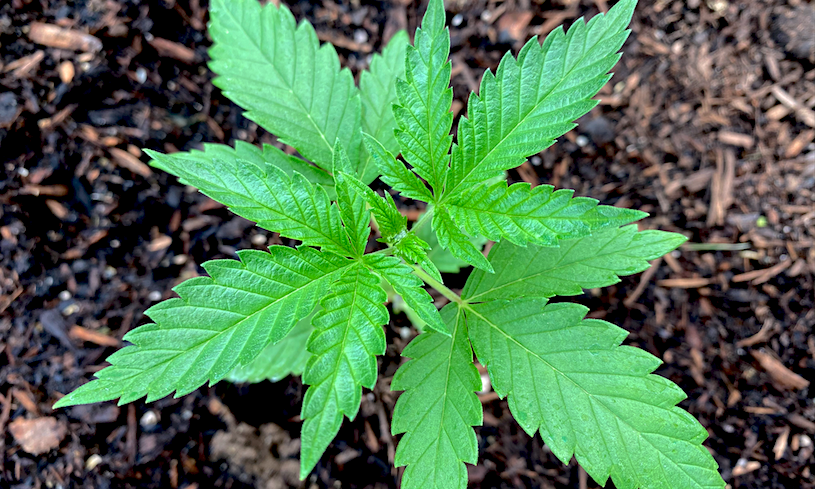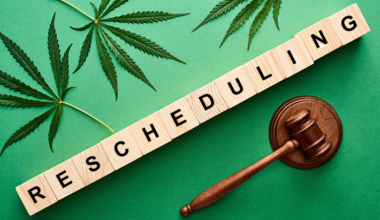The governor of Mississippi on Wednesday signed a bill to legalize medical marijuana, making the state the 37th to enact the policy change in the country.
The legislature approved the measure last week with solid margins, advancing the reform more than one year after voters approved medical cannabis legalization at the ballot. That initiative was struck down by the state Supreme Court for procedural reasons, prompting lawmakers to take it up legislatively.
In a social media post, Gov. Tate Reeves (R) said that there’s “no doubt that there are individuals in our state who could do significantly better if they had access to medically prescribed doses of cannabis.” However, he reiterated concerns that there are “also those who really want a recreational marijuana program that could lead to more people smoking and less people working, with all of the societal and family ills that that brings.”
After the bill cleared both chambers and was amended, legislators convened for a conference committee to deliver a final product to Reeves, who had previously expressed some concern about purchase limits included in earlier version of the measure—even going so far as to threaten a veto.
While recent changes to legislation did reduce the amount of cannabis patients can buy, the governor didn’t get the specific lower purchase threshold policy that he pushed for. But he ultimately signed the legislation.
“I have made it clear that the bill on my desk is not the one that I would have written,” he said on Wednesday. “But it is a fact that the legislators who wrote the final version of the bill (the 45th or 46th draft) made significant improvements to get us towards accomplishing the ultimate goal.”
Reeves had five days following the legislature’s action, excluding Sundays, to either to sign it into law or return it with objections. If he didn’t take any action by Wednesday’s deadline, the bill would have become law without his signature.
“Because of these improvements to the program… SB2095 will become law,” the governor said. “I thank all of the legislators for their efforts on these improvements and all of their hard work. I am most grateful to all of you: Mississippians who made your voice heard.”
My statement on the medical marijuana bill: pic.twitter.com/VTpXbfMv6C
— Tate Reeves (@tatereeves) February 2, 2022
“Now, hopefully, we can put this issue behind us and move on to other pressing matters facing our state,” he said.
Under the new law, dispensaries are set be licensed in about six months, meaning Mississippi’s medical cannabis program could be up and running, at least in limited form, by the end of the year if all goes smoothly.
—
Marijuana Moment is already tracking more than 1,000 cannabis, psychedelics and drug policy bills in state legislatures and Congress this year. Patreon supporters pledging at least $25/month get access to our interactive maps, charts and hearing calendar so they don’t miss any developments.![]()
Learn more about our marijuana bill tracker and become a supporter on Patreon to get access.
—
The bill, SB 2095, draws heavily from provisions negotiated by lawmakers in the second half of last year, as legislative leaders prepared a bill for an anticipated special session last summer that the governor never called. Supporters say the lengthy proposal represents a middle ground between the more permissive plan approved by voters and the narrower approach preferred by Reeves and some lawmakers.
The measure will allow patients with about two dozen qualifying medical conditions to purchase the equivalent of 3.5 grams of marijuana (or one gram of cannabis concentrate) per day, with a maximum monthly limit of three ounces.
Patients can qualify for medical cannabis if they’ve been diagnosed with Parkinson’s, Huntington’s, muscular dystrophy, glaucoma, spastic quadriplegia, HIV, AIDS, hepatitis, Alzheimer’s, sickle-cell anemia, Crohn’s, ulcerative colitis, neuropathy, spinal cord disease or severe injury as well as chronic medical conditions or treatments that produce severe nausea, cachexia or wasting, seizures, severe or persistent muscle spasms or chronic pain.
Further conditions can be added later by regulators via petition. State-issued patient registration cards will cost $25, though some people can qualify for a lower price.
Patients or caretakers will be prohibited from growing their own cannabis under the new law. Products from state-licensed companies, meanwhile, will be limited to 30 percent THC for cannabis flower and 60 percent for concentrates.
Medical marijuana will be taxed at a wholesale rate of five percent, and purchases will also be subject to state sales tax.
While smoking and vaping cannabis is allowed for patients, both will be illegal in public and in motor vehicles. It will still be a crime for patients to drive under the influence.
The legislation would task the Mississippi Department of Health to oversee the new industry and establish a nine-member advisory committee to make recommendations on issues such as patient access and industry safety.
Previous versions of the bill would have tasked the state Commission of Agriculture and Commerce with regulatory duties, but the House removed the agency through an amendment. Commissioner Andy Gipson, who for months had pushed back against the plan, thanked lawmakers for making the change.
Licensing of cannabis businesses other than dispensaries—including cultivators, processors, transporters, disposal entities, testing labs and research facilities—will begin within 120 days, with the first licenses issued about a month after that. The dispensary licensing process will kick off within 150 days, with the first licenses coming a month later.
In general, local governments cannot ban medical cannabis businesses outright or “make their operation impracticable,” the bill says, but a separate provision allows local governments to opt out of the program altogether within 90 days of enactment. In such cases, citizens could then petition to put the question to a vote.
There will be no limit on the number of licensed businesses under the plan. Cannabis businesses may have to get seek local approval to operate, however, and municipalities can adopt zoning and land use restrictions.
The original Senate bill would have allowed cultivators and processors to be located only in areas zoned for agricultural or industrial use, and the House later added an amendment to let those businesses set up in commercially-zoned area as well, but the Mississippi Municipal League pushed back on the change. A bicameral conference committee altered that by saying that the businesses could only operate commercial zones if granted a variance by a local government.
Mississippi voters decisively approved a broad legalization initiative in November 2020, but the state Supreme Court overturned the measure on procedural grounds last May—simultaneously doing away with the state’s entire initiative process.
For much of last year, it appeared lawmakers were set to pass a medical marijuana bill during a special legislative session, but the governor ultimately decided against calling the special session after reaching an impasse with lawmakers. Those who supported legalization said at the time that responsibility for the failure rested with Reeves.
Later that month, Reeves dodged questions from patient advocates about why he’d failed to call the special session. Then in late December, he said on social media that he had “repeatedly told the members of the Legislature that I am willing to sign a bill that is truly medical marijuana,” but stressed that there should be “reasonable restrictions.”
A poll released in June found that a majority of Mississippi voters support legalizing marijuana for both medical and recreational use, with 63 percent saying they want the legislature to pass a bill that mirrors the ballot measure that was nullified by the Supreme Court.
Medical Disclaimer:
The information provided in these blog posts is intended for general informational and educational purposes only. It is not a substitute for professional medical advice, diagnosis, or treatment. Always seek the advice of your physician or other qualified healthcare provider with any questions you may have regarding a medical condition. The use of any information provided in these blog posts is solely at your own risk. The authors and the website do not recommend or endorse any specific products, treatments, or procedures mentioned. Reliance on any information in these blog posts is solely at your own discretion.







